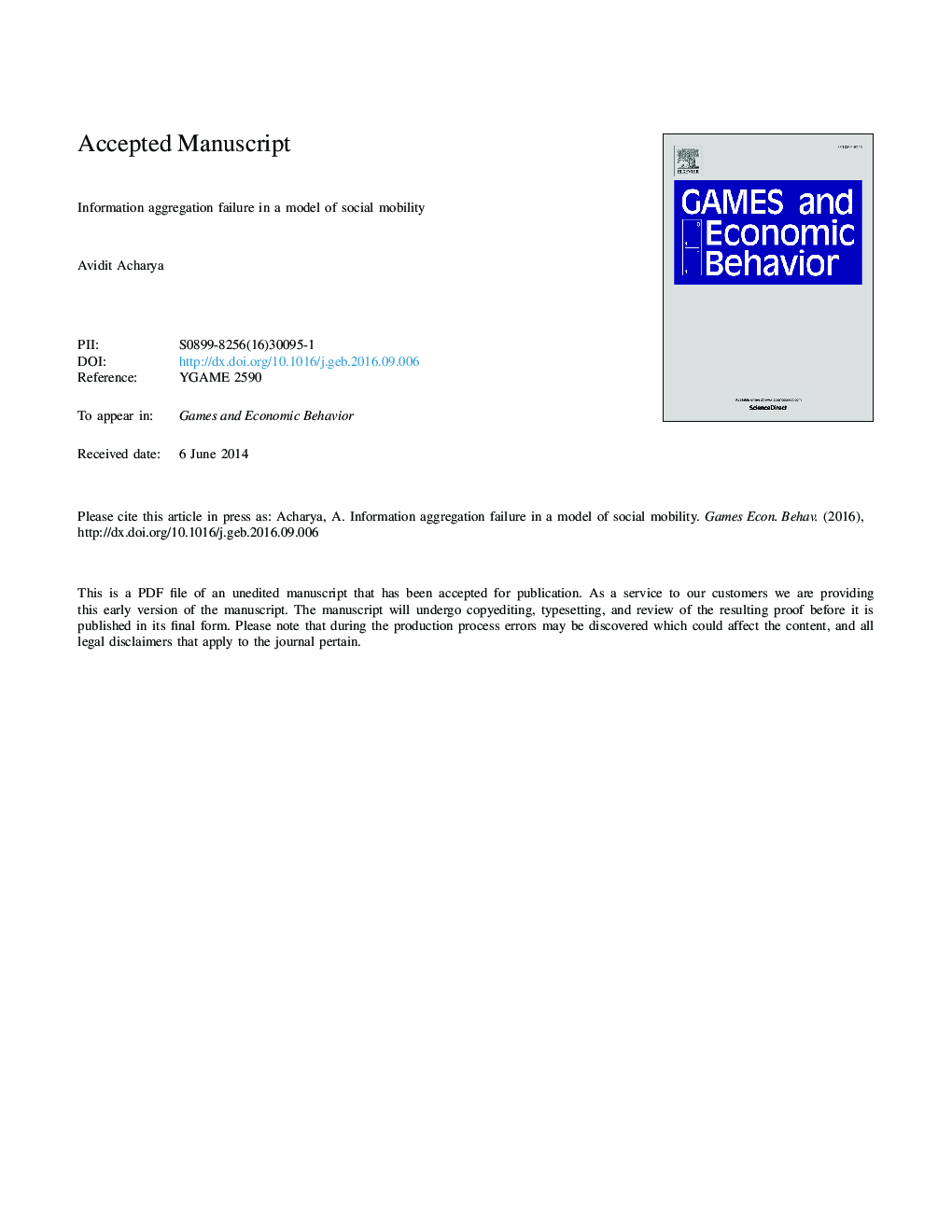| Article ID | Journal | Published Year | Pages | File Type |
|---|---|---|---|---|
| 5071454 | Games and Economic Behavior | 2016 | 35 Pages |
Abstract
I study a model in which high and low income voters must decide between continuing with a status quo policy or switching to a different policy, which is more redistributive. Under the status quo policy, low income voters may get an opportunity to become high income earners. Such opportunities are expected to arise infrequently, so in expectation these voters prefer the more redistributive policy. Nevertheless, there is an equilibrium in which the vast majority of them cast their ballots in favor of re-electing the less redistributive status quo. Although these voters are fully strategic and correctly assess their chances for upward mobility, they vote exactly as if they are naive voters who over-estimate their chances of becoming rich. As the size of the electorate grows, the status quo policy can be re-elected with certainty, and the election fails to fully aggregate information.
Related Topics
Social Sciences and Humanities
Economics, Econometrics and Finance
Economics and Econometrics
Authors
Avidit Acharya,
